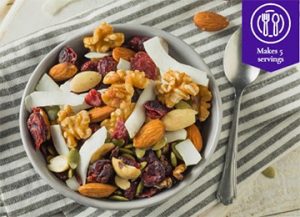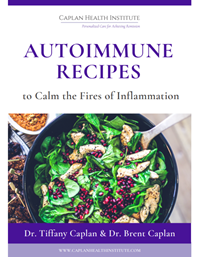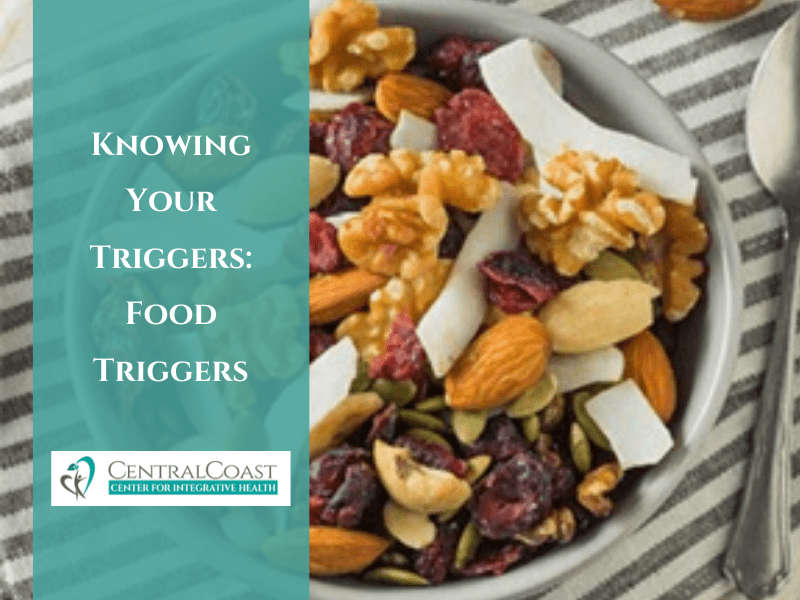Please NOTE: This blog is part 3 of a three-part SERIES on TRIGGERS. If you are looking for Non-Food Triggers, please click here.
This information is important information. But remember that everyone’s triggers are TOTALLY UNIQUE to them.
Let’s dig down and explore food triggers. These are especially unique to each person. Some foods also have sub-level nuances that make self-education critical.
Learning your food triggers will bring relief and calm. Knowledge is always power!
Clear understanding of your triggers brings more power over your health challenges. This knowledge will help you control your symptoms. Deeper understanding of the source of those symptoms can slow down the progression.
Gluten
One of the primary causes of autoimmune diseases is chronic inflammation. Gluten is often blamed for this, even with the mildest sensitivities. Also contributes to bacterial imbalances in the digestive tract. Bacterial imbalances lead to Leaky Gut Syndrome which is a bigger risk. It’s not necessary to go completely gluten-free. But reducing your gluten intake will lower your risk for autoimmune flare-ups. The great news is, there are plenty of delicious gluten-free options available now. Converting to a no-gluten or low-gluten diet has become much easier.
Grains
Non-gluten grains like rice, oats, and corn are very much like gluten. They can be as damaging as gluten for people with sensitivities. The problem is, your body can mistake these grains for gluten (this is called cross-reactivity). This can spur an over-reactive immune system to attack. It is helpful to run immunological blood tests to see what your body is reacting to. Going grain-free for a while and reintroducing each grain one at a time, can also help to determine what is causing triggers.
Quinoa
Quinoa is high in proteins called saponins. Unfortunately, saponins can be inflammatory, damaging the gut lining. This in turn can cause an immune response in the body. Soaking and rinsing quinoa sometimes reduces the effect. But with serious autoimmune conditions that is not always enough. Cut out quinoa altogether to avoid inflammation and trigger response.
Sugar
Sugar can be a huge trigger for autoimmune disease. Also can contribute to leaky gut which triggers autoimmune reactions. But it is important to understand what qualifies as sugar. Sugar triggers include processed foods, candy and sweet snacks. Soda and juices are high in sugar, but there are also lots of sneaky sources! And the worst part is, that a lot of these foods are marketed as healthy. Avoid added sugars and eat low glycemic impact fruits like berries for a sweet treat instead.
Dairy
If you have concerns about autoimmune disease, avoid dairy. Milk, cheese, and butter are all common triggers. This is due to a protein in dairy products called casein. Casein causes inflammation which leads to autoimmune issues. Almond milk and coconut milk is a good alternative. Casein-free butter and cheeses are also available. Immunological blood tests can determine whether dairy is a potential trigger for you.
Nightshades
Nightshades are a specific group of vegetables that trigger autoimmune diseases for some. These vegetables include tomatoes, both hot and bell peppers, eggplant, potatoes, and chilis. Nightshades are fine for most people. But for those with a predisposition to autoimmune disease they can be a major trigger. They contain chemicals that set off signals to the immune system to attack healthy cells. If diagnosed with an autoimmune disease, cut nightshades.
Soy
Soy is another common trigger. It can be hidden in a lot of foods so you need to make sure you are reading labels diligently to be able to avoid it. Remember, for the immune system to react, it only needs a tiny amount of the trigger.
Chocolate
Chocolate is another common cross-reactive trigger with gluten. Yet, researchers are not exactly sure why. Some types of chocolate are more apt to cause flare-ups than others. Milk chocolate is the biggest culprit. This is most likely because it contains other common triggers like sugar and dairy. Or, there may be compounds in chocolate that are compounds in gluten. Only eat chocolate if you are certain it is safe for you.
RECIPE – Berry Bliss Trail Mix
Eating healthy does not mean “no snacks!” This trail mix will make up for all that you might feel you’re missing out on.

Berry Bliss Trail Mix
INGREDIENTS
1.5 Cups freeze dried cranberries (no sugar added)
1.5 Cup freeze dried blueberries (no sugar added)
½ Cup of coconut flakes (unsweetened)
½ Tablespoon of cinnamon powder
INSTRUCTIONS
- Combine all the ingredients in a bowl. Mix well.
- Distribute evenly into 5 small individual to-go containers for your on-the-go snacking needs.
Coconut
Coconuts are high in manganese which is excellent for bone health. Manganese is also great for the metabolism of proteins, cholesterol and carbohydrates. Coconuts are also rich in copper and iron, which help form red blood cells. And then, the selenium, an important antioxidant vital to protecting your cells.
Coconut also has positive health benefits for heart health, cholesterol levels, and blood sugar control.
Cinnamon
Cinnamon is a more powerful antioxidant than garlic and oregano! Also helps prevent the negative impact of free radicals. This decreases oxidative stress on the immune system. Cinnamon is a great anti-inflammatory, especially for inflammation of the liver.
Together, following benefits of cinnamon help lower the risk of heart disease:
- Reduces bad LDL cholesterol and triglycerides. Helps good HDL cholesterol remain stable in the body.
- Helps reduce blood pressure, shown in positive effects on blood markers.
- Improves blood glucose, insulin resistance and lipid metabolism, reducing oxidative stress.
This is about YOU – and there is great information and support we want to share with you.
Warm wishes for the healthiest you!
Dr. Tiffany Caplan & Dr. Brent Caplan
 PS: To check out more healthy recipes for your immune system, read Drs. Caplan cookbook “Recipes to Calm the Fires of Inflammation.”
PS: To check out more healthy recipes for your immune system, read Drs. Caplan cookbook “Recipes to Calm the Fires of Inflammation.”

Board Certified in Integrative Medicine
Certified Functional Medicine Practitioner
Institute for Functional Medicine Certified Practitioner






